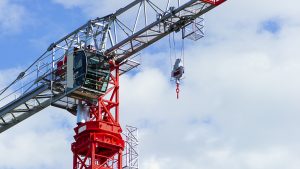Domco Construction Inc. v. Aliva Holdings Inc.; In March 2000, Domco Construction Inc. and Royal Enterprises Corp. entered into a written fixed-price contract in which Domco agreed to provide all labour and materials for the construction of a Burger King restaurant in Swift Current, Saskatchewan.
Domco Construction Inc. v. Aliva Holdings Inc.
Construction company entered into written fixed–price contract to provide labour and material for construction of a restaurant — contract provided that changes must have written authorization — architect’s role was assumed by owner early in contract — work was completed to satisfaction of owner — owner refused to pay for changes — course of conduct had developed where changes were approved verbally by owner — construction company entitled to rely on verbal approvals
REVAY AND ASSOCIATES LIMITED
Editor, Construction Law Letter
The following decision illustrates a legal principle succinctly stated in Goldsmith, Canadian Building Contracts:
If the contract requires a written order as a condition precedent to payment for extra work, a contractor who carries out such extra work without a written order can not recover additional payment therefore. Whether or not a written order is a condition precedent to payment is a matter of the construction of a contract. Even if it is, it may be waived by the owner’s conduct or acquiescence.
In March 2000, Domco Construction Inc. and Royal Enterprises Corp. entered into a written fixed-price contract in which Domco agreed to provide all labour and materials for the construction of a Burger King restaurant in Swift Current, Saskatchewan.
Royal held the franchise and operated the restaurant, while Aliva Holdings Inc. owned the land on which the Burger King was located. In the following, Royal and Aliva will jointly be called the Owner.
Domco did the site development for the project and completed the construction to the satisfaction of the Owner. However, Domco’s account for changes to the contract was not paid.
Under GC 11 of the construction contract, the Owner could, without invalidating the contract, make changes in the work to be done with the contract price to be adjusted accordingly. No such work was to proceed without the written authorization of the Owner. The Owner refused to pay for changes that were not authorized in writing.
The issue before Justice Ryan-Froslie of the Saskatchewan Court of Queen’s Bench was what amount was properly due and owing to Domco.
In support of its position, the Owner cited the Supreme Court of Canada decision in Peter Kiewit Sons’ Company of Canada Ltd. v. Eakins Construction Ltd.; the Alberta Court of Appeal decision in Catre Industries Ltd. v. R. and two decisions from the Saskatchewan court, Sthamann Homes Ltd. v. Fettes and Humboldt Plumbing & Heating Ltd. v. Humboldt Development Ltd.
Domco argued that, while the contract required written authorization for changes, the parties had adopted a different practice and that, in the circumstances of this case, verbal approval of changes was sufficient.
Domco relied on the cases: Naegeli v. Marche Homes Ltd.; Triple R. Contracting Ltd. v. 384848 Alberta Ltd.; DIC Enterprises Ltd. v. Kosloski; Nu West Decorating Ltd. v. Gateway Construction & Engineering Ltd.; A & A Drywall Ltd. v. Fraserview Development Corp.; and Sargent Douglas & Co. v. Kozic Holdings Ltd.
Counsel for the Owner countered that there was no evidence of an agreement between Domco and the Owner other than the written contract and that, therefore, the contractor’s claim should be rejected. Where there was disagreement as to what was agreed verbally, the argument went, the burden of proof was on the contractor.
However, there were other deviations from the written contract. The contract provided that a licensed architect or engineer would administer the contract and interpret the contract requirements. This service would, of course, include the preparation of change orders. Chamberlain Architect Services Limited originally fulfilled this role.
Early in the contract Randy Yano, the president and principal shareholder of Royal and Aliva, decided not to use Chamberlain’s services and to fulfil that role himself in order to save money. He was neither an architect nor an engineer.
His decision proved to be “penny wise and pound foolish”. By his own acknowledgment, he did not understand the construction industry, or how it worked. “He placed himself in a position he was not equipped to deal with,” commented the judge.
It was clear from the evidence that while Domco accepted Yano’s decision to act as his own consultant, there was no discussion between them on how change orders would be dealt with as a result of that decision. They were all too busy trying to finish the work.
As Yano assumed the role of consultant, the obligation to prepare the change orders should have been assumed by him. It was not. There was a lot of paperwork to be done once the contract was awarded. Normally, all paperwork is sent to the architect for review but in this case there was no architect and no one to do shop drawing reviews or inspections. The contract provided for a $300 per day liquidated damages if Domco did not finish the project on time. Yano acknowledged he often reminded Domco of this fact.
A course of conduct quickly developed between the parties in dealing with change orders. Changes were usually requested by Yano or by the Owner. Domco’s representative, Ms. Jansen-Unrau, would record the changes requested in the meeting notes, obtain quotes where necessary and then forward the quotes to Yano for his approval. Yano would provide verbal approval and Domco would proceed with the change. There was considerable evidence substantiating this course of conduct.
In Triple R. Contracting Ltd., Justice Phillips of the Alberta Queen’s Bench, in dealing with a similar situation, stated:
…when, as here, the subsequent conduct of the contracting parties points to the conclusion that they do not consider themselves to be governed by the Contract’s terms and instead developed an alternative arrangement established on clear evidence, it is unreasonable to impose the written Contract on the relationship.
In DIC Enterprises, the court dealt with a situation where the parties entered into a contract for the construction of a new home. The contract contained a provision whereby any changes in the work would be made in writing. After finding the clause in issue there did not create a condition precedent to payment, Justice Walker stated:
…One usual form of waiver is by the owner himself ordering the extra work. Another is to consistently ignore the requirement in practice. Another approach, with the same result, is that an employer may be liable to pay for extra work because he has expressly ordered or authorized or ratified it himself, with his liability arising independently of the building contract. Failure to comply with the requirements of form may not be fatal to a builder if he can prove the employer authorized extras.
In the Domco case, Justice Ryan-Froslie said that it would be unreasonable to allow Yano, who brought about the change to the contract in the first place, to now rely on the need for written authorization:
Mr. Yano cannot pick and chose when his verbal authorization is sufficient. Given the parties’ course of conduct, Domco had a right to rely on his word.
Saskatchewan Court of Queen’s Bench
Ryan-Froslie J.
December 1, 2003
Note: Domco Construction Inc. v. Aliva Holdings Inc. has been appealed to the Saskatchewan Court of Appeal.










Recent Comments
comments for this post are closed